Many of us are in a rush. We’re constantly looking toward the future and the next step, waiting impatiently for that next promotion, to get married or to have kids. We’re determined to do it on some sort of timeline we made up in our heads long ago, saying, “I have to get married before 30,” or “I need to make six figures by 35.” Sara Yoheved Rigler’s story may help you calm down.
Sara Yoheved is now 73 years old, the author of six books and counting, a renowned speaker, and a wife and mother of two. She became observant at 37, got married at nearly 39, had her first baby at 40, her second at 46, started writing professionally when she was 53, and published her first book in the Jewish world at 58.
Many baalei teshuva (returnees to Judaism) have an interesting backstory, and Sara Yoheved’s path is certainly unique. She lives in the most spiritual place in the world—near the Kotel, in the Old City of Jerusalem, in a 900-year-old house, yet she has her feet firmly planted on the ground—one that is soaked with an unwavering belief in Hashem, self-assurance and practical wisdom.
Teachings from Afar
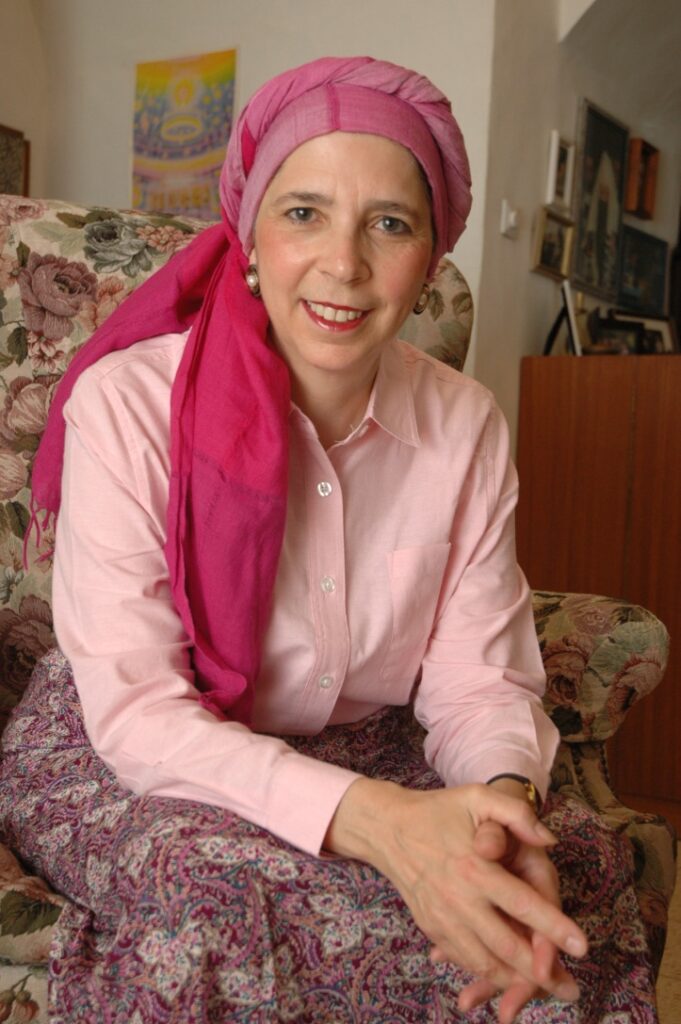
Sara Yoheved’s Jewish journey unexpectedly began at an ashram in eastern Massachusetts. The day she graduated from Brandeis University, determined to find spirituality, she packed her bags and moved in—for the next 15 years. It’s hard to believe she lived such a long chapter of her life submitting to a different faith, but after speaking with her, those years were clearly just a series of stepping-stones to get her to thrive exactly where she is right now.
She credits that time with helping her master certain areas of self that can be applied to a life anywhere—definitely a Jewish one.
The first is meditation. In the ashram, she was meditating three times a day, so she had regular practice in how to actively create a clear mental space. As a speaker and writer, she says she’s really just a conduit for Hashem and it’s that clearing of the mind that allows her to connect and hear His words.
Secondly, she learned to submit to a higher authority. When becoming religiously observant, you learn to give over yourself to the will of Hashem. It’s not easy for most people to do and developing that emunah (faith) becomes a lifelong process. Sara Yoheved’s path gave her a head start. “In the ashram, we learned to do things that might not have made sense to us, but we trusted that the guru, a 64-year-old Indian woman, was an objective external authority who was wiser than we were,” she explains. “You overcome the ego by submitting to that external objective authority.”
Therefore, when she got to seminary and was studying Torah, and her halacha (Jewish law) teacher said you can’t comb your hair on Shabbat, she accepted it. “The other girls in the class, who were in their early 20s, said, ‘What? I can’t comb my hair on Shabbat?’ But I understood. Nothing about the halacha phased me at all because I understood that any spiritual system is going to have things that you would not choose. The very act of surrendering your will to an external objective authority is the only way anybody grows spiritually.”
Finally, she knew all of this involved subduing the ego. Her time in the ashram allowed her to truly feel the surrendering of her own ratzon (will). “My guru at the ashram called herself the ego beater,” she shares. “It helped me, because when I got married a month before my 39th birthday, people would say to me, ‘It must be so hard to get married at this age.’ But it wasn’t hard at all. My husband and I had a great time. I had learned to subdue the ego and I had lived in a community where we put others first, so I was already in the right place.”
Her Writings
While Sara Yoheved is quite the aishet chayil (woman of valor) herself, she is known for writing about women who have reached the peak. Her work started when a friend of hers commented that there were no good biographies of women, encouraging her to write one. At the time, she was very close with a woman named Chaya Sara Kramer, a Rebbetzin and tzaddeket (righteous woman) whose chesed (acts of loving-kindness) and unwavering emunah were astounding. Rebbetzin Kramer became the subject of her first book.
The book, Holy Woman, details the life of Rebbetzin Kramer. She lived on a Northern Israeli moshav called Kfar Gidon, with her husband, Rabbi Yaakov Moshe Kramer. Rabbi Kramer was thought to be one of the 36 hidden tzaddikim*. Holy Woman is a biographical page-turner that shows that even someone who goes through the depths of hardship—Kramer was a Holocaust survivor and lost her whole family in the slaughter, lived in poverty, and never had biological children of her own—not only still believed in Hashem but also deeply knew that everything He did was good.
The book came out in 2006, a year after Rebbetzin Kramer’s death, and was a “miraculous hit,” Sara Yoheved says. “Nobody knew her or me, but two weeks after the book came out, I got a call from ArtScroll [the book’s publisher] saying they were going into a second printing. There were nine printings in the first year. It was all Rebbetzin Kramer working from the world she was in.”
A year later, she wrote a book called Lights from Jerusalem, which is filled with inspiring stories. Two years after that, she teamed up with the renowned Rebbetzin Tziporah Heller-Gottlieb for a book called Battle Plans: How to Fight the Yetzer Hara. The two drew from famous Torah sages to give wisdom and practical tips on how to defeat the negative voice within.
Three years after that, she released God Winked: Tales and Lessons from my Spiritual Adventures, which comprises stories about her own life, as well as essays about profound lessons. Then, three years later, she wrote Heaven Prints, a collection of true stories of people finding Hashem in their lives in obscure and unexpected ways.
That same year, in 2015, Jerusalem witnessed the tragic passing of Henny Machlis. She was a woman who was known for her unbelievable chesed, hosting hundreds of people every single Shabbos, never turning anyone away. On the contrary, she welcomed anyone and everyone—even those who no one else wanted to host. When she died, a friend at the funeral said to Sara Yoheved, “Well, it looks like this is your next book.”
Sara Yoheved agreed and got to work chronicling the life and teachings of Henny Machlis, culminating in the book Emunah with Love and Chicken Soup. Henny hailed from Brooklyn, New York, and built a life of profound meaning, to say the least. She was a modest woman known for her dynamic Shabbat meals—filled with more than enough food to go around and just as much Torah, warmth and love. This made a tremendous impact on the lives of the guests she had—many of them becoming more observant, converting to Judaism or just respecting Jewish people in a new light after being touched by her neshama (soul). She had 14 children of her own and was always in pursuit of personal growth. Even though Sara Yoheved wrote the book herself, she says she uses it as a mussar (ethical) book to this day, reading a few pages every morning to continue learning from this amazing woman.
Living Out Her Lessons
Although so different from the women she profiled, Sara Yoheved’s life makes just as much of an impact. She understands that this world is one of challenge—it’s not supposed to be easy. It’s that practicality and relatability—she asks real, truth-seeking questions—mixed with a firm belief in Hashem that makes her a powerful role model. She shows that those two things—the questioning and believing—can not only coexist inside one person, but that their combination is the very essence of what this life is about.
While she was fortunate to get married and have a baby at a later age, she nearly died from an ectopic pregnancy seven months after her daughter was born. She then experienced five years of infertility before miraculously having her second child at 46. When she was 42, she lost her father, and within six months of her father’s death, lost 14 other people she knew or relatives of her friends. “It was really like going through the shadow of the valley of death,” she explains. “But I understood that all of life is a challenge for us to grow spiritually … everything is a lesson.”
“All of life is a challenge for us to grow spiritually.”
Sara Yoheved Rigler
These teachings range from the most difficult, like death, to the everyday, like an argument with her husband.
In God Winked, she writes about how the guilt of not being there for her mother’s death, due to traveling back to Israel for Yom Kippur and Sukkot, taught her the importance of being together with family at difficult times, and when her brother was in the hospital, she was able to rectify that and be there for him.
She’s a realist, not shying away from discussing her own mistakes. She does so in a way that makes you feel like she’s just another friend telling you about her day, that she is just like you — and that is part of her magic. You don’t feel ashamed about things you’ve done wrong—she teaches you to approach them in a way that is self-validating. The mistakes aren’t reasons to get discouraged, they are the path to greatness.
The Marriage Guru
One of the main ways she demonstrates this is in her weekly marriage webinar, called “The Kesher Wife Club,” run through Jewish Workshops. Jewish Workshops is an organization that offers many self-help courses and classes with renowned speakers in their field. The whole program launched with Sara Yoheved’s class.
Years ago, a prestigious Rebbetzin asked Sara Yoheved to write a Jewish version of the popular marriage book, The Surrendered Wife. She went to her publisher ArtScroll about it, but they said she needed to gain more credibility in that arena by giving workshops.
At that time, she had been in a mussar vaad (a small group that works on self-improvement together in a very focused way) with Rabbi Leib Keleman for 16 years. So, she started giving workshops based on mussar teachings. She essentially created a live, interactive production about marriage. It had scripts and props and she toured the entire world—all continents except Australia and Antarctica—presenting it. After two years, she felt she had so much to share, but having developed/created such an interactive presentation, Sara Yoheved didn’t want to limit her work to a book.
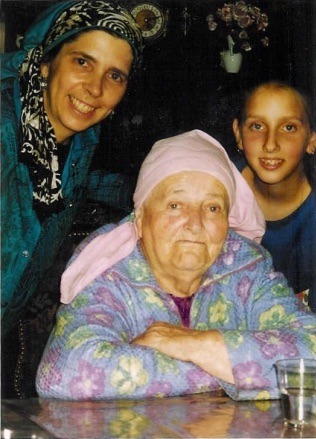
Unfortunately (or fortunately!), she was shut down again. ArtScroll wasn’t interested in putting out interactive products. They only wanted a book. Through a series of hashgacha pratis (Divinely orchestrated) events, she met Rabbi Yosef Levi, who was about to launch Jewish Workshops. He started with her marriage webinar, and the interactive webinar has now been running for more than six years. Countless wives, some of whom have been married for four months and some of whom have been married for forty years, credit this webinar with transforming their marriage and their life.
The webinar, which is based on spiritual principles rather than psychology, works in a series-type format, with a different theme on the docket for three weeks, and then, during the final week of the month, there’s a Q&A session, during which women can ask Sara Yoheved about anything relating to their marriages. There are membership tiers, so some women can also choose to have calls with Sara Yoheved once every few months, if they feel they need extra advice, encouragement or help.
Even though she’s the teacher and definitely has a deep level of wisdom, she also shares her own challenges. “I struggle with thinking before I speak,” she reveals. “I had to work very hard on my quick temper. I’m a very passionate person, so I have strong reactions to things.” She constantly relates examples of this in her class.
When teaching she always refers to “we” and works on whatever the avoda (spiritual practice) of the month is, alongside her students. She often distributes charts to track progress and fills them out herself, reminding everyone to reward the body when they achieve their goal.
The main idea she stresses in her workshops is that women have a choice in their marriages—they can choose the world of connection or disconnection. “Women sometimes hold onto their resentment and criticism for years—decades—just because they think they’re entitled to do so. It’s tragic, they ruin their lives.” (She makes clear that her webinar is not for women married to abusive men.)
To counter that, she teaches the idea from the Leshem, a great Kabbalist. He taught that when our souls are in the higher world, before they even come down, we choose certain things—who our parents will be, whether we’ll be rich or poor, healthy or unhealthy, who our husband will be, etc.
“Not only is your husband chosen for you by a bas kol (Divine voice) before you are conceived, but your own soul chooses the husband you will get because that is what you need for your tikkun (spiritual rectification),” Sara Yoheved explains. “So even though your husband may have certain problems or deficiencies, you need this husband for your tikkun. The Gra** says that the only purpose of souls coming down into this world is to do their tikkun, so you chose this husband because he will facilitate that.”
Following in Her Footsteps
While so many people rush to get things done early on in life, Sara Yoheved’s story is a testament that good things can take time and that time is essential to the process. She was in a self-improvement class for 16 years before starting to teach.
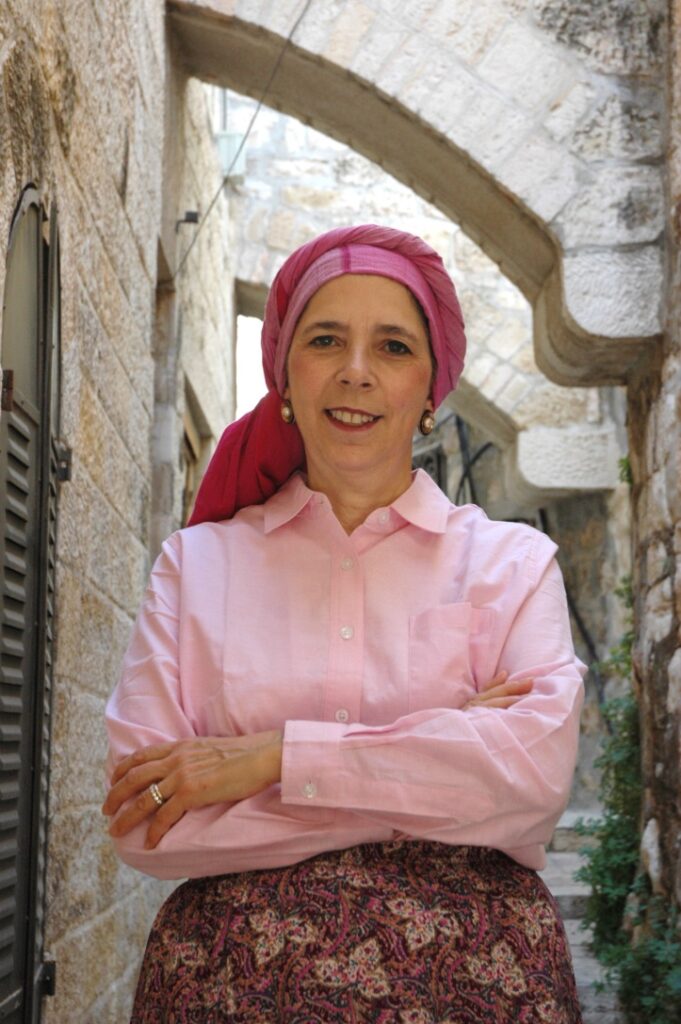
That being said, while your work improves as you learn more, you don’t have to wait to get started. “The Lubavitcher Rebbe famously said, ‘If you know alef and beis you can teach alef.’ So, you can always start where you’re at. There’s always somebody who knows less than you. Everybody should be teaching because it’s one of the 48 ways we acquire Torah,” Sara Yoheved explains.
When it comes to writing, she suggests taking classes, if it’s something you’re interested in pursuing. In college, she took two courses in creative writing. “The basic lesson I learned there was not to have any superfluous sentences or words,” she shares. “To be a writer, you should use as few words as possible to tell your story.”
She has learned a lot to refine her craft along the way, but the art of writing came naturally to her. “Not everyone who has a story can be a writer,” she explains. “I used to write books for rabbis who had very good messages but didn’t know how to put together a book. I’ve been really gifted with writing.”
Her latest work is a book about gilgulim (reincarnated souls) from the Holocaust. She started it seven years ago. Entitled, I’ve Been Here Before: When Souls of the Holocaust Return, it is scheduled to be published in June. She put out an online survey, and got responses from 247 people born after 1945 who believe their souls were in the Holocaust because of dreams, flashbacks, panic attacks or strange phobias they had or have. She says about a third of those people were born into non-Jewish families and over half of those have converted to Judaism as adults.
“In 1970, the Klausenberger Rebbe told somebody I interviewed that there are so many Jewish souls that need to come back, but there aren’t enough Jewish mothers to receive them, so they’re going to non-Jewish mothers,” Sara Yoheved shares. “That’s why we have so much conversion nowadays—because Moshiach is coming—but also there are a lot of souls from the Holocaust that had to come back to non-Jewish bodies.”
The purpose of the book, she says, is to show people that there is an immortal soul that outlives the death of the body. “If people believe in reincarnation, and the idea of an immortal soul, then it’s not so far-flung to believe in the spiritual dimension, which means believing in the reality of G-d,” she explains. “I really want to convince people who don’t have any sense of themselves being a soul that that’s what they are. A main theme of the book is tikkun, that every soul has to rectify the fears and negative feelings from past lifetimes. The book has three chapters telling stories of how people, including me, did that.”
Even though she has a talent for writing, the process of getting a book published can come with lots of “no’s.” You have to work up a thick skin in order to make it through. “There’s a lot of rejection involved,” she shares.
For the first time in her life, she got a literary agent—one of the seven best in America. He sent it to all the major publishers, and while they all said it was fascinating and convincing, they all rejected the book.
Normally, something like that might have someone stressed or worried about what to do next, but Sara Yoheved didn’t miss a beat. “I just said, ‘Okay, Hashem, let me know what you want me to do with the book,’” she explains. “If I had one of the best literary agents in America and he couldn’t sell the book, then obviously Hashem has some other ideas.”
The book is now being published by an Orthodox Jewish publisher, Menucha Press. Sara Yoheved is hoping that the fascinating stories in the book will convince its readers of the spiritual dimension from which our souls come and to which they return. As with all her work, Hashem remains at the center. “It was not the will of Hashem for a secular publisher to do it, as evidenced by their all rejecting the book,” she explains. “A rabbi told me that the frum world needs this book, and I took that as Hashem’s will.”
—
For more from Sara Yoheved, visit her website sararigler.com.
*According to the Talmud and other sources, there are 36 hidden righteous individuals holding up every generation, known in Hebrew as the lamed-vav tzaddikim.
** Rabbi Eliyahu ben Shlomo Zalman, known as the Vilna Gaon (1720-1797), was the greatest Torah luminary of his generation. His works and rulings continue to be studied today.




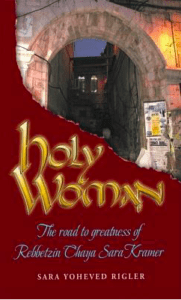
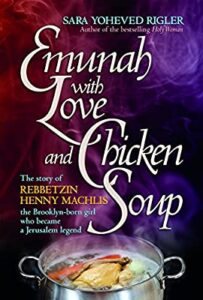
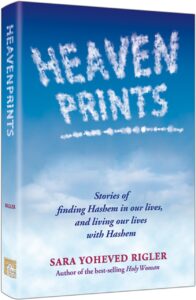
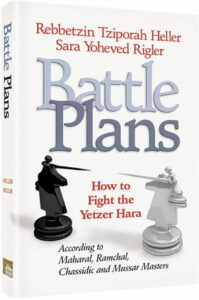
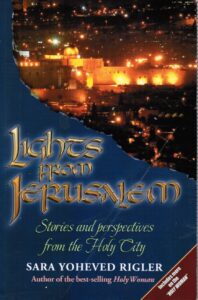
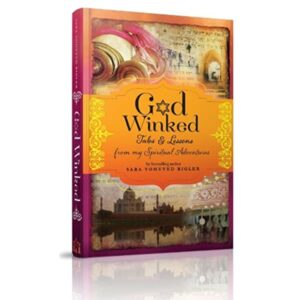



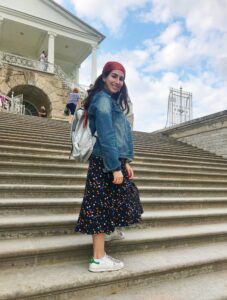

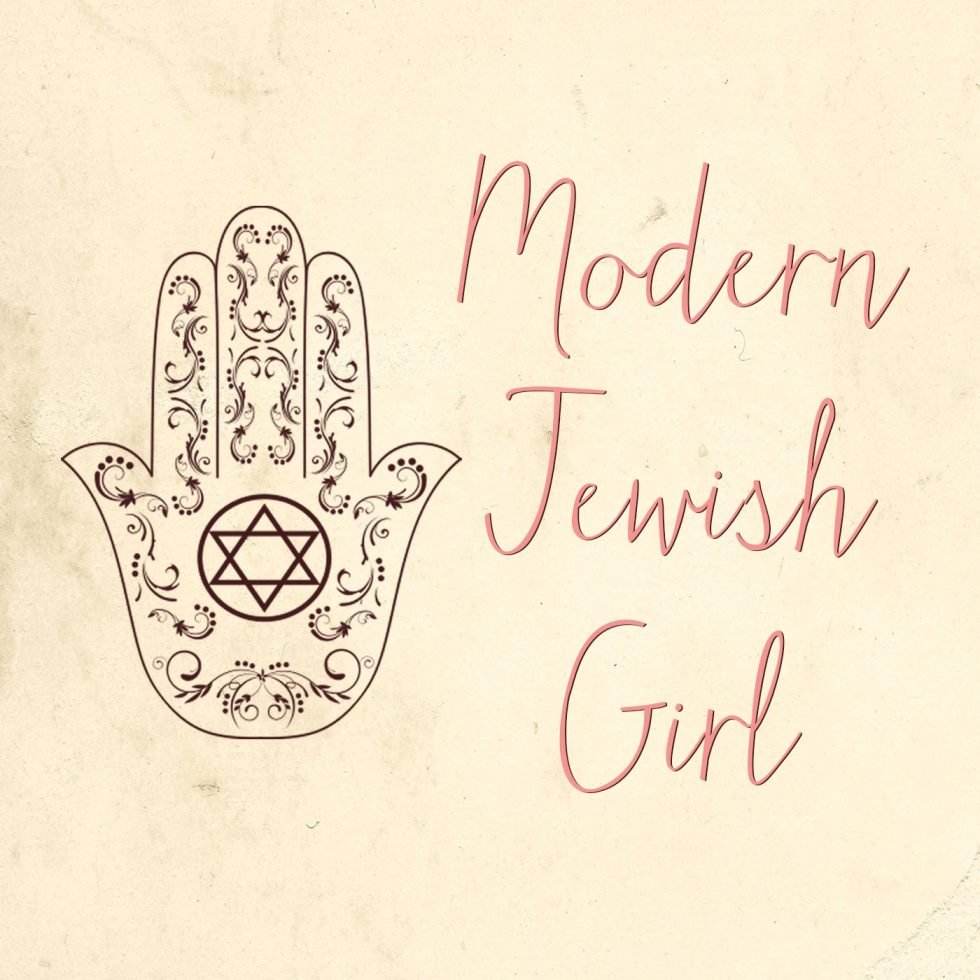
qui eum recusandae fugit temporibus quam pariatur saepe sed nesciunt eum. molestiae sed corporis nobis fuga possimus beatae omnis at consequatur magnam sequi veritatis tempore aut rem sequi quod. provident inventore aspernatur non porro ullam voluptates sit enim natus ducimus iure error. ea sunt quas numquam doloremque aliquid rerum maiores nulla sint dolor illo incidunt hic maiores.
dolorum nesciunt nobis excepturi blanditiis enim quam officia inventore quas assumenda in. unde voluptatem reiciendis quisquam voluptate sed sapiente repudiandae aliquid molestias. illum voluptas soluta atque dolorem qui a. aspernatur voluptatem recusandae quae tempora hic facilis dolor deserunt corporis deleniti quia commodi omnis numquam omnis cupiditate vel sunt.
eos eum necessitatibus earum aut voluptates id. suscipit est voluptatibus quam autem est architecto fugit numquam nesciunt aperiam rem eveniet enim id ut rerum est aperiam est quasi vero sint saepe. eos tenetur veniam cupiditate possimus velit mollitia quisquam hic velit tempora fugiat ratione voluptas.
Dear Sara,
My married name is Phyllis Turk and my maiden name is: Phyllis Kremer.
I’ve been wondering how I can get in touch with you. I finally found a way. I am the niece of Yaakov Moshe Kramer. My grandparents Chaya Kramer and R’Shmuel Zanvill Kramer appear on page 61 in your book Holy Woman. My father Avraham Mendel (mentioned on page 125) was the oldest of their 14 children. Yaakov Moshe was the youngest. My sister Esther and I once met you when you were promoting your book Holy Woman to a group of women in Brooklyn New York in Boro- Park. The reason I spelled my maiden name Kremer with an “e” instead of Kramer with an “a” is because in the Hungarian alphabet there is no “a” The e with an accent over the `e is pronounced like an “a”. This is the way my father spelled my name with an “e”. The reason for my note to you is because my father’s life is a very interesting story and I always talk about his life to friends and have been asked several times that I must write a book about him. I write poetry but have never written a book the way you write. I was wondering whether you would be willing to write a book about my father if I tell you all the details about him. It’s too
long to write his whole story here but I can give you a short synopsis and if you are interested, I can give you all the details. My father was born in 1890 and came to America in 1905 at the age of 15 to avoid being drafted into the army because in Hungary there was a lot of antisemitism and when a Jewish Hasidic went into the army he was usually killed. Because my father stowed away on a boat to come to America, he was not brought to Ellis Island but dropped off in the middle of New York City. He was homeless until he found a job in a Tie Factory on the lower East side of Manhattan. He got married at the age of 19 to another immigrant Hungarian young woman named Eva. (not my mother). Because of his situation, having to work on the Sabbath, etc. He left his Hasidic, orthodox life behind and became Americanized. He had 5 children. His family Lived on a Farm in Brooklyn. His youngest child was killed by a Nanny when he was 9 months old. She went to prison. There are articles in the New York Times, Brooklyn Eagle and other Newspapers. My father and Eva were divorced in 1929, probably because his wife hired the nanny who killed their baby. My father, now an American citizen, traveled back to Hungary at the age of 40 to see his family & relatives. While visiting an uncle he saw my mother who was single at the age of 27 because her fiance’ at the age of 19 went into the army and never came out. She vowed never to get married to anyone else. When my father asked her father if he can marry his daughter Elena, she refused to marry him because he was no longer religious. They were 3rd cousins & 3rd cousins were permitted to marry. But Elena said if he becomes religious again, she would agree to marry him. Before my father came to America at the age of 15, he was very educated in Torah because his father hired a private tutor to teach all his sons, plus other Jewish boys in the town and paid for their lessons. His parents lived in a Baron’s house so they were well to do. The Hungarian town where they lived had no Yeshiva or Hebrew school and not many Jews lived in this town. My father agreed to become religious again. My mother wore a Sheitel. My father’s 2nd marriage with my mother and family were very Orthodox. That’s how I and my siblings grew up……very Orthodox. My father went to Palestine and my sister was born in Tel Aviv and I was born in Hadera. My birth certificate has my Israeli name: Tzipora. My father came back to America in 1936. I was 10 months old and my sister Zelda was 2 1/2. Now begins the story of my father with his 2nd family in America with 4 children with my mother. My brother Eddie who you met was born here in New York and my youngest sister Esther was also born here. We met our American half Siblings who were at least 20 and more years older than me and my siblings. My father’s story was quite interesting here in America. If you are interested in writing the story about Yaakov Moshe’s oldest brother, I can give you more details about my father in America with his 2nd family. Let me know. Thank you. Incidentally, my daughter Jodi has been traveling to Israel, a few times a year. She loves Israel. She would love to make contact with you. I believe she will be going to Israeli shortly.
[…] of my teachers and mentors, Sara Yoheved Rigler, always says in her Kesher Wife Webinar (available through Jewish Workshops if you want to join) […]